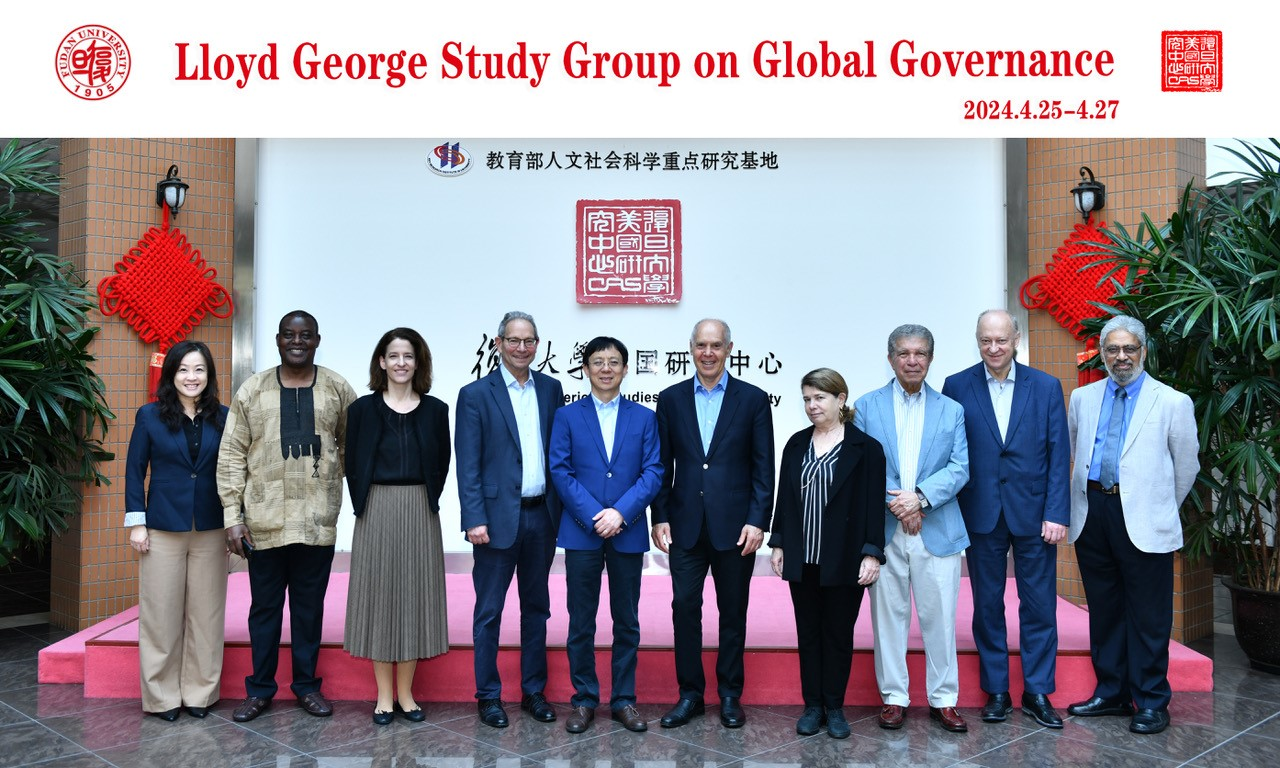The world confronts mounting great-power rivalry at a time when domestic economic and political developments pose potent challenges to stable governance from within. International competition is moving into technological and digital spaces, and globalized challenges such as climate change, pandemics, migration, and supply chain disruptions rise in urgency.
To address these challenges, Georgetown University’s School of Foreign Service and the Phelan US Centre launched the David Lloyd George Study Group on Global Governance. Consisting of 10 core members, with broad regional representation globally, the study group focuses on global governance, broadly defined. Its mandate is to analyze and debate the shape of the emerging international system, how to adapt existing international institutions and policies to a rapidly changing landscape, and what new structures and arrangements might be needed to advance global governance.
For more information on the Lloyd George Study Group on Global Governance, please visit the Study Group website.
Meeting 1
Date: 17-18 November 2022
Host: Georgetown University
Topic: The emerging structure of the international system, including the implications of great power rivalry, rising nationalism and economic inequality for global governance.
Public event: Governing the World to Come, 17 November 2022
Meeting 2
Date: 1-2 June 2023
Host: LSE
Topic: Political capacities for global governance inside key countries and regions
Public event: Global Governance in an Age of Fracture, 1 June 2023
Watch a video recording of the event
Meeting 3
Date: 9-10 November 2023
Host: Georgetown University, Doha, Qatar
Topic: Global challenges, including climate change, rising political polarization, and the growing global distrust in governance
Public event: Global Governance in an Age of Fracture, 9 November 2023
Meeting 4
Date: 25-27 April 2024
Host: Fudan University, Shanghai, China
Topic: Reforming global governance
Public event: China’s Changing Relations with the Rest of the World, 26 April 2024

L-R: Selina Ho (National University of Singapore), Eghosa Emmanuel Osaghae (University of Ibadan, Nigerian Institute of International Affairs), Cornelia Woll (Hertie School), Charles Kupchan (Georgetown University), Wu Xinbo (Fudan University), Peter Trubowitz (LSE Phelan US Centre), Monica Herz (Pontifical Catholic University of Rio de Janeiro), Bahgat Korany (The American University in Cairo), Andrey Kortunov (Russian International Affairs Council, Moscow) and C. Raja Mohan (Asia Society Policy Institute)